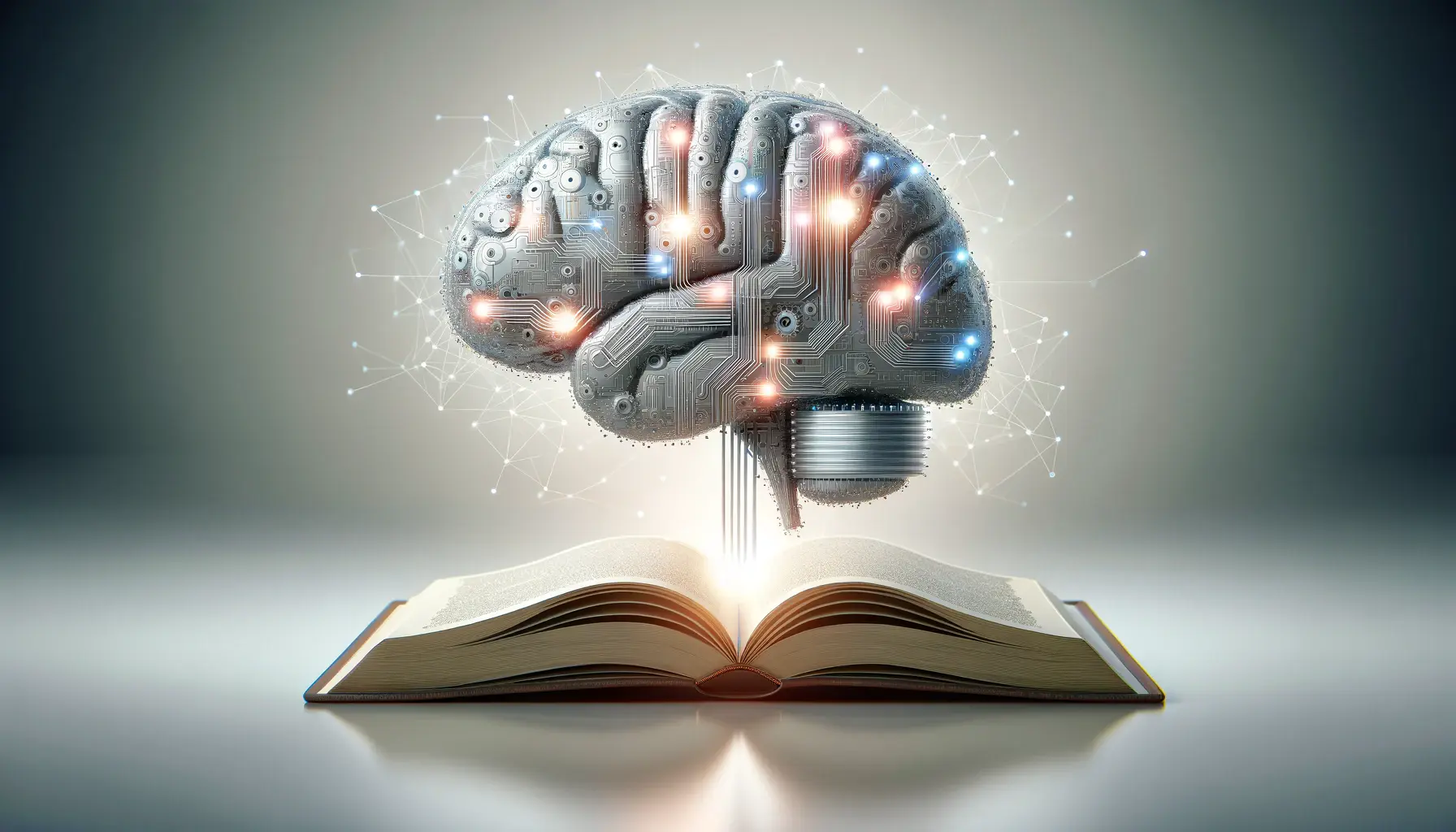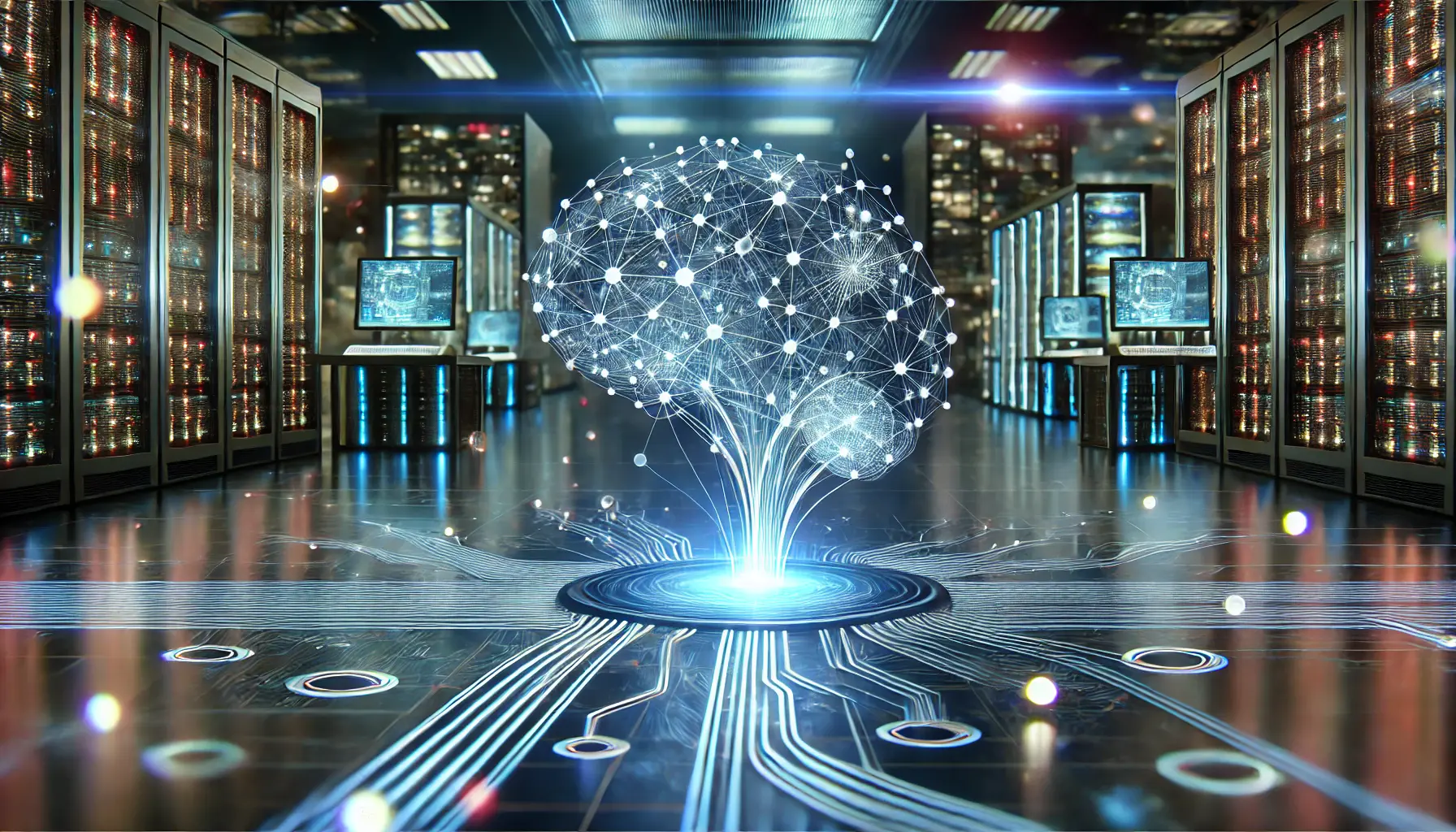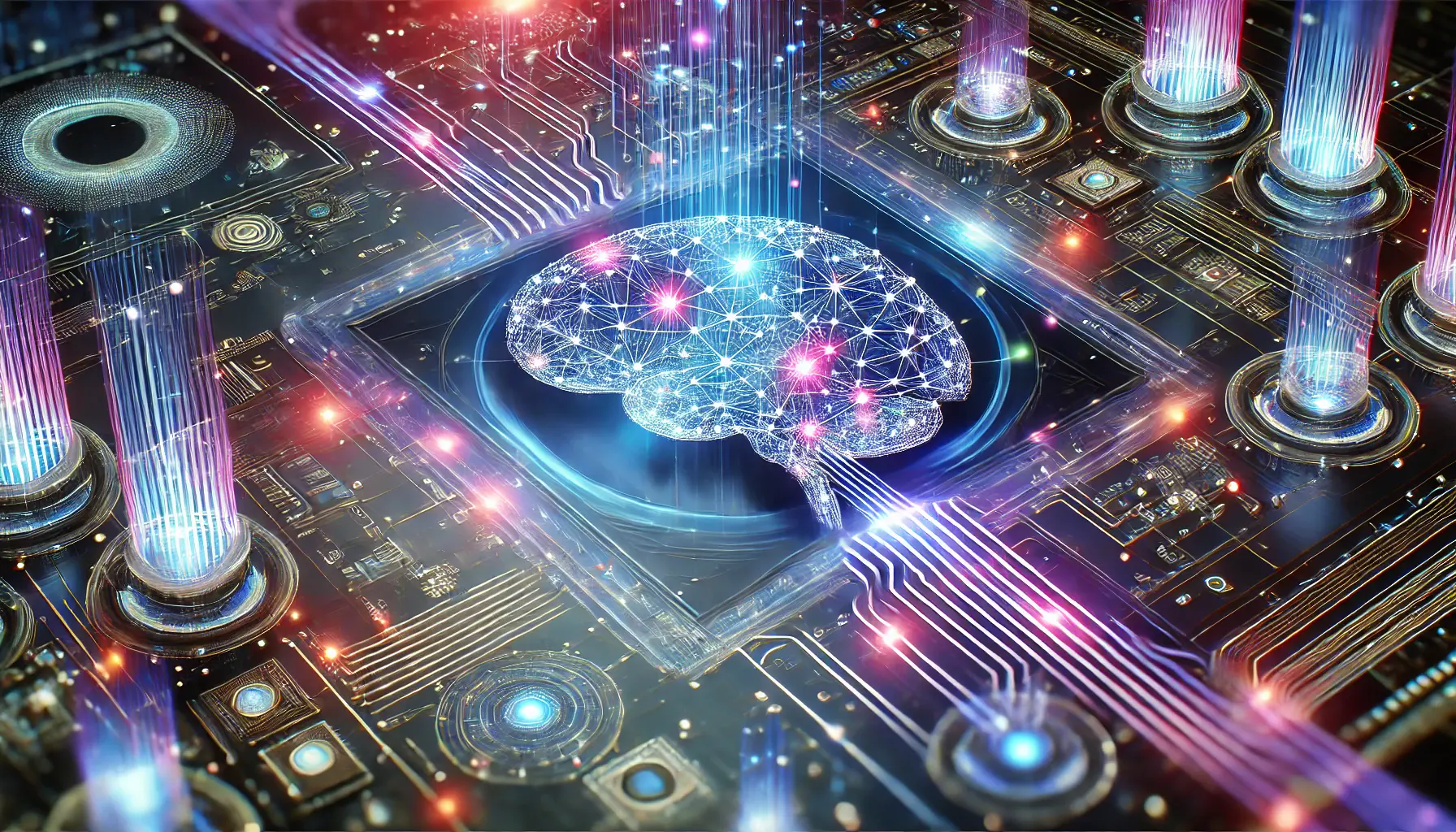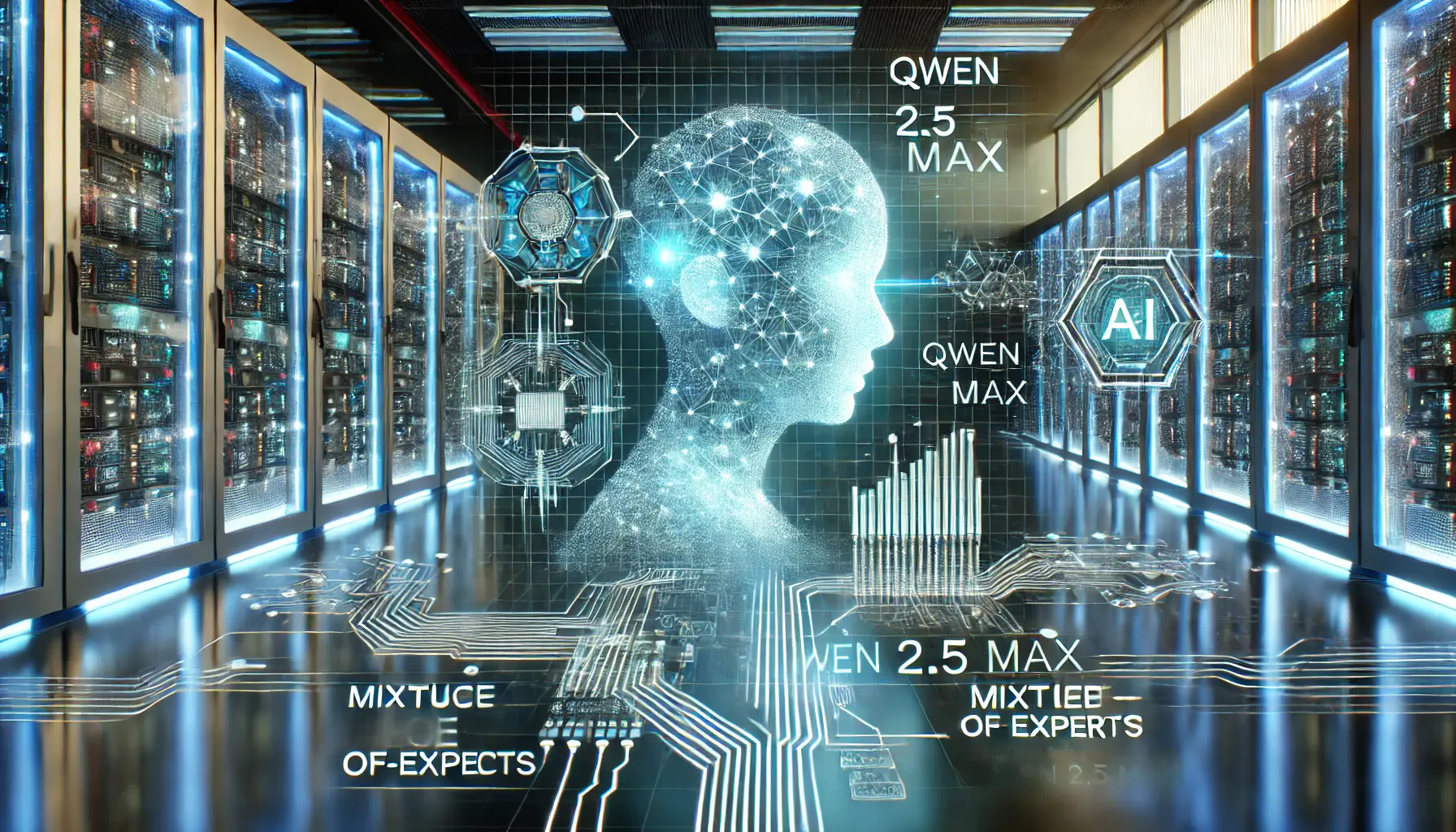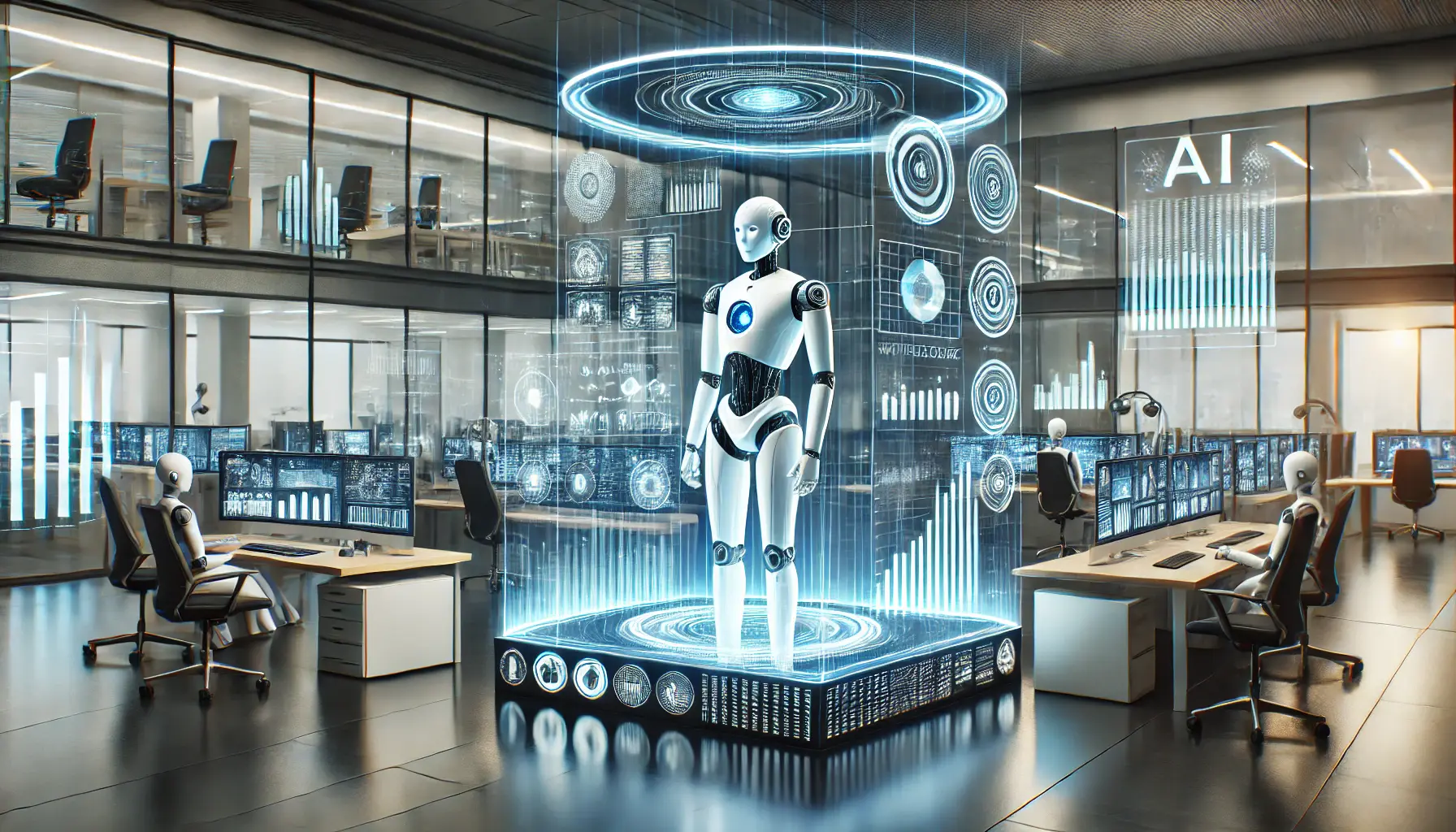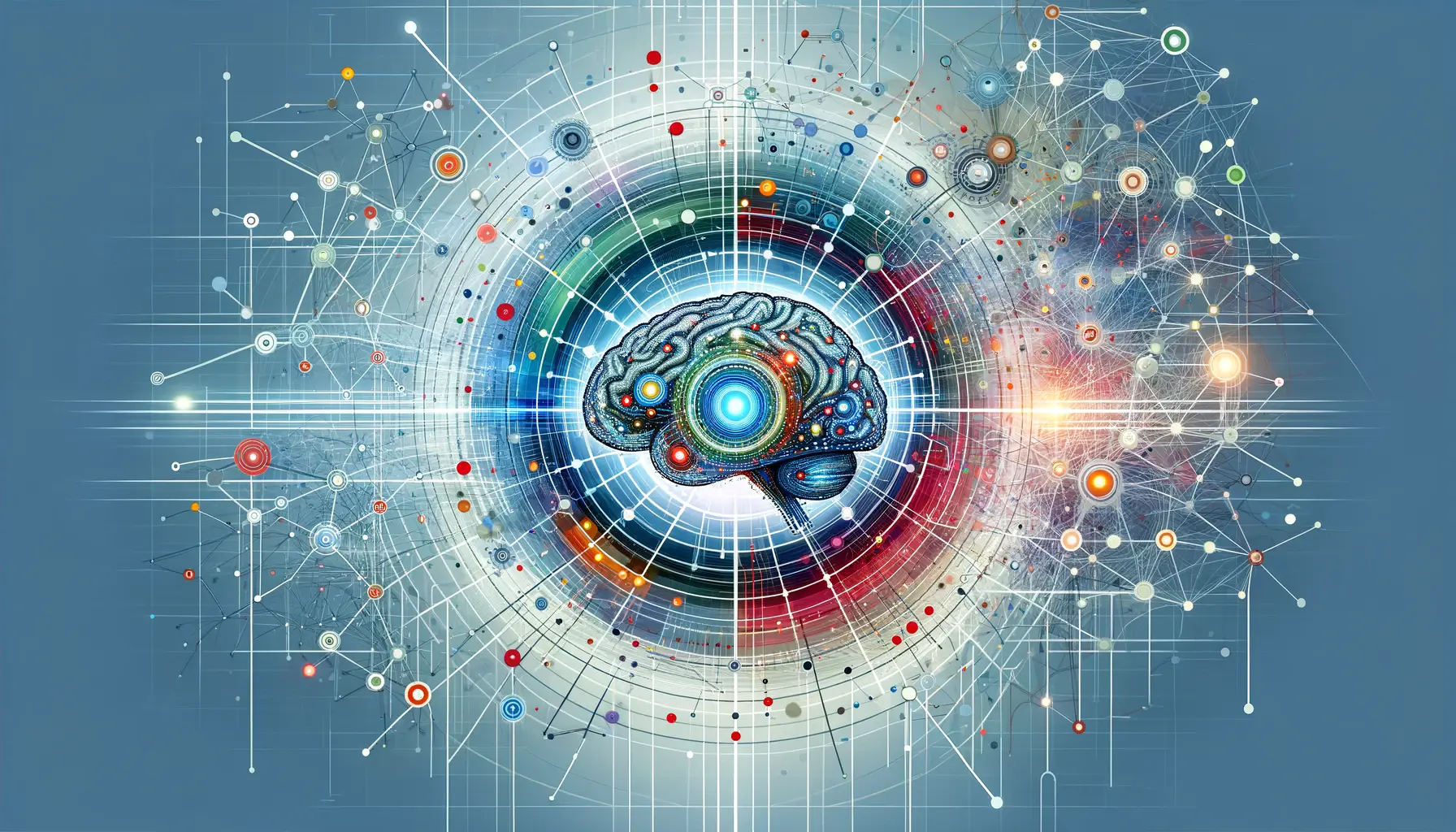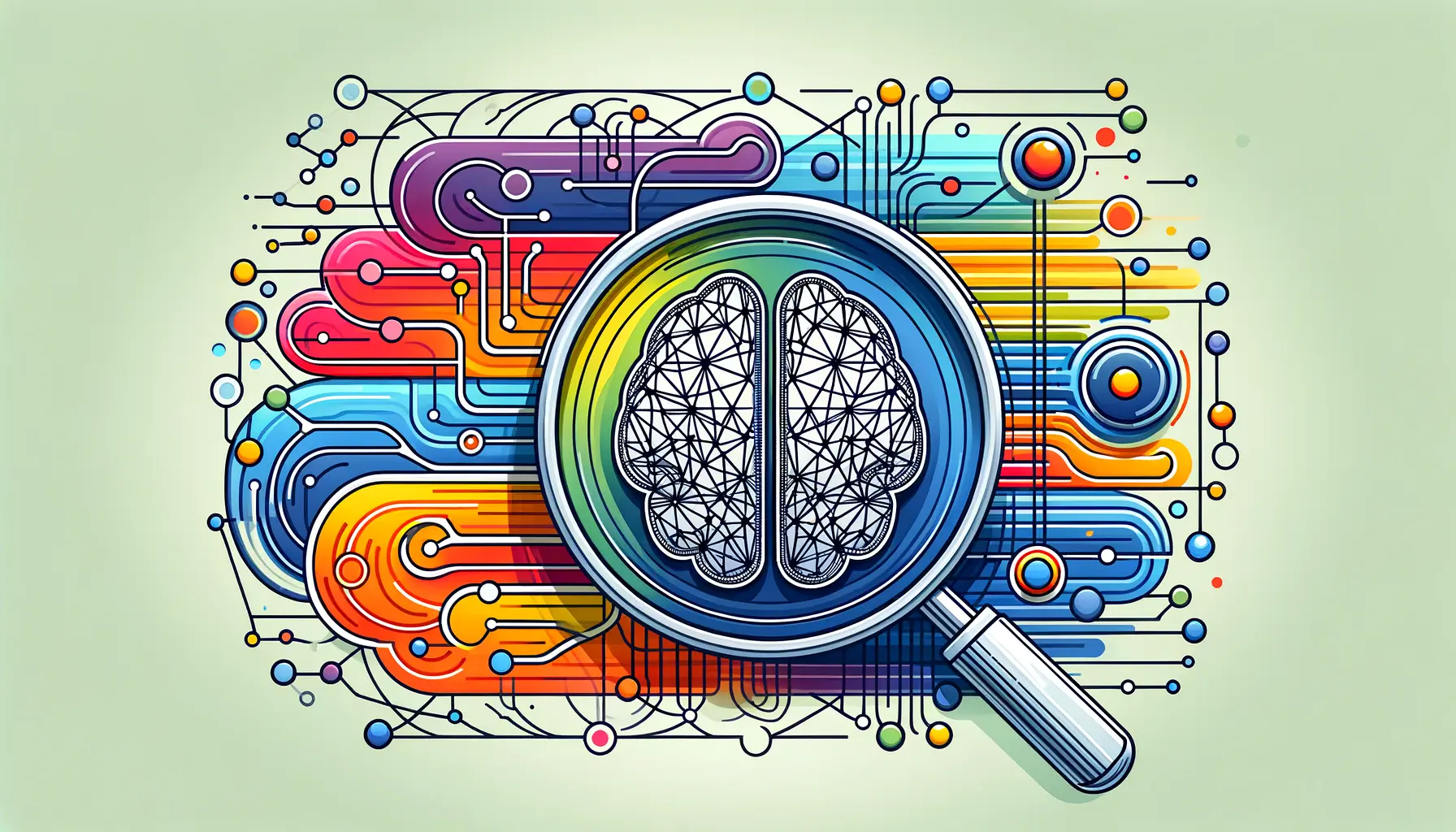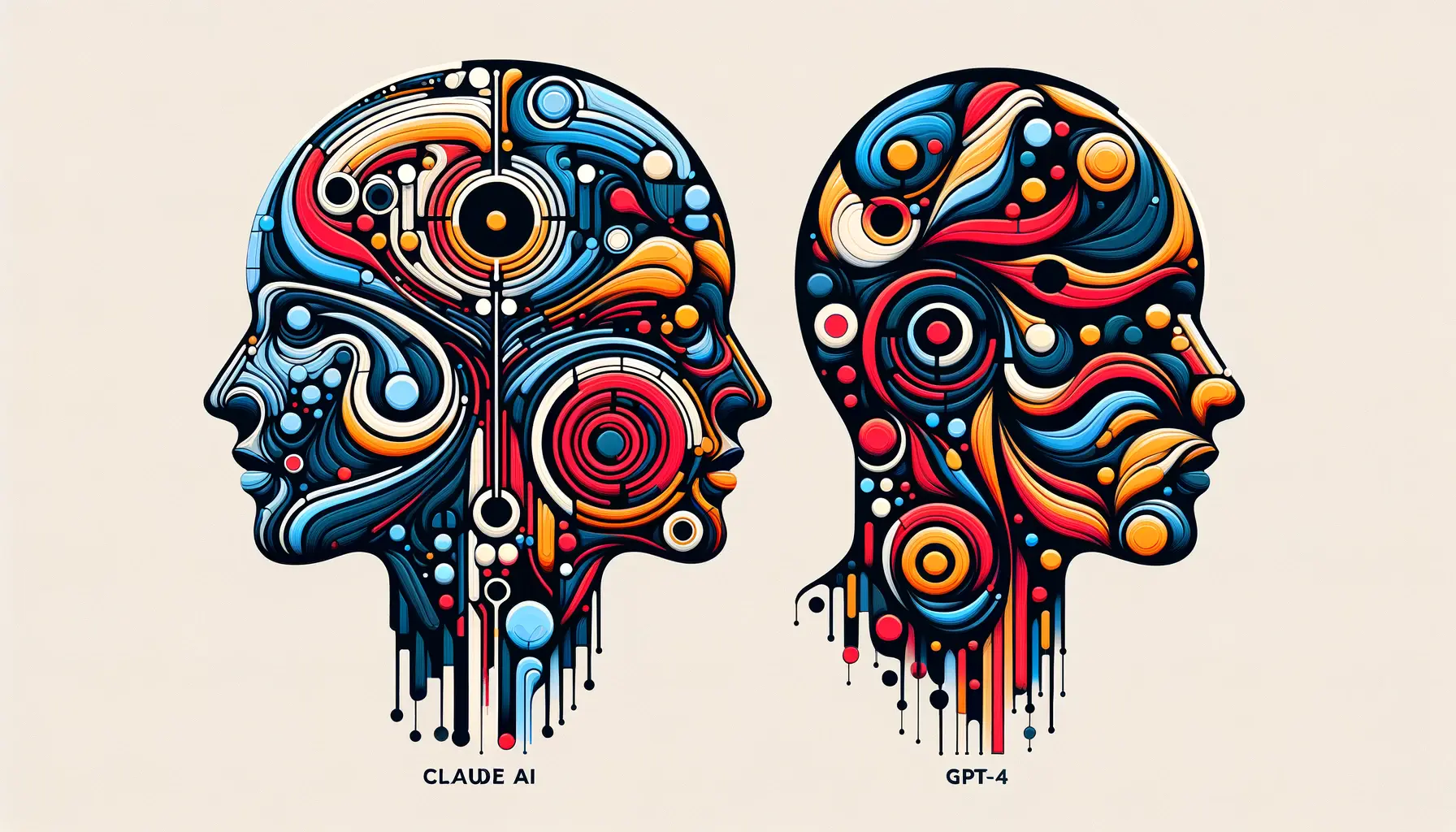In the rapidly evolving landscape of artificial intelligence, Claude AI emerges as a beacon of innovation, reshaping our interaction with technology.
Developed by Anthropic, Claude AI stands at the forefront of the AI revolution, offering a glimpse into the future of human-computer interaction.
This article delves deep into the intricacies of Claude AI’s language models, exploring their capabilities, the technology behind them, and their potential impact on various sectors.
At its core, Claude AI is designed to understand, interpret, and generate human-like text, bridging the gap between complex machine learning algorithms and practical, everyday applications.
The development of Claude AI by Anthropic, a company founded by former OpenAI researchers, signifies a significant leap towards creating AI systems that are not only powerful but also aligned with ethical guidelines and human values.
- The Genesis of Claude AI
- Breaking Down the Technology
- Enhancing User Experience with Claude AI
- Challenges and Ethical Considerations in AI Development
- Advancements in Natural Language Processing
- Impact of Claude AI on Various Industries
- Future Directions of Claude AI and AI Ethics
- Integrating Claude AI into Business Strategies
- Embracing the Future with Claude AI
- Claude AI: Your Questions Answered
The Genesis of Claude AI
The journey of Claude AI began with the vision of creating an AI that could understand and respond to human language with unprecedented accuracy and depth.
Anthropic’s approach to achieving this was through the development of large language models (LLMs) that could process vast amounts of text data, learning patterns, nuances, and the intricacies of human language.
The result was Claude, an AI that promises to redefine how we interact with digital systems.
Unlike its predecessors, Claude AI is built on the foundation of “Constitutional AI,” a novel concept that ensures the AI’s actions are governed by a set of ethical principles.
This approach not only enhances the reliability of the AI but also ensures its outputs are aligned with human values, making it a trustworthy companion in various applications, from customer service to content creation.
Breaking Down the Technology
The technology underpinning Claude AI is both complex and fascinating.
At its heart lies a transformer-based model, a type of neural network architecture that has revolutionized natural language processing (NLP).
This architecture enables Claude to understand context, generate coherent responses, and even exhibit a degree of creativity in its outputs.
By training on a diverse dataset that includes books, articles, and websites, Claude has developed a broad understanding of human language.
One of the key features of Claude AI is its ability to process and generate text in a conversational manner.
This is achieved through advanced machine learning techniques, including supervised learning (SL) and reinforcement learning from human feedback (RLHF).
These methods allow Claude to improve over time, learning from interactions and feedback to produce more accurate and contextually relevant responses.
Applications and Impact
Claude AI’s language models have a wide range of applications, from automating customer support to assisting with creative writing.
In the business sector, Claude can handle customer inquiries, provide support, and even generate reports, freeing up human employees to focus on more complex tasks.
For content creators, Claude offers a tool for brainstorming, drafting articles, and even composing poetry or prose, showcasing its versatility and creative potential.
Moreover, Claude’s ethical framework ensures that its applications are beneficial and do not harm society.
This is particularly important in sensitive areas such as mental health support, where Claude can provide assistance or companionship without the risk of unethical behavior.
Claude AI represents a significant advancement in AI technology, combining the power of large language models with a commitment to ethical principles and human values.
Enhancing User Experience with Claude AI
The advent of Claude AI has not only marked a significant milestone in the field of artificial intelligence but also introduced a paradigm shift in enhancing user experience across various digital platforms.
By leveraging its sophisticated language models, Claude AI offers personalized and engaging interactions, setting a new standard for user experience.
Personalization at Its Core
One of the standout features of Claude AI is its ability to tailor conversations and content to the individual needs and preferences of users.
This personalization is achieved through deep learning algorithms that analyze user interactions, preferences, and feedback, allowing Claude to adapt its responses accordingly.
The impact of this personalization is profound, offering users a more engaging and relevant experience that feels genuinely human.
- Customized Content Creation: Claude AI can generate articles, reports, and creative writing that align with the user’s style and preferences, making each piece of content unique and personalized.
- Adaptive Customer Support: In customer service applications, Claude can adjust its tone, language, and responses based on the customer’s behavior and history, providing a more tailored support experience.
Improving Accessibility and Inclusivity
Claude AI’s language capabilities extend beyond mere personalization, playing a crucial role in making digital content more accessible and inclusive.
By understanding and generating text in multiple languages, Claude breaks down language barriers, offering users worldwide access to information and services in their native language.
Furthermore, its ability to simplify complex text into more understandable language makes information more accessible to people of all ages and educational backgrounds.
- Language Diversity: Claude supports multiple languages, enabling users from different linguistic backgrounds to interact with AI-powered applications seamlessly.
- Simplification of Complex Information: Claude can rephrase technical or complex information into simpler terms, making it accessible to a broader audience.
Streamlining Interactions and Enhancing Efficiency
Claude AI’s intuitive understanding of human language allows for streamlined interactions that save time and enhance efficiency.
Whether it’s navigating a website, querying a database, or seeking customer support, Claude’s ability to understand and respond to natural language queries simplifies the process, reducing the need for complex navigation or search efforts.
- Quick Resolution of Queries: Users can ask questions in natural language, and Claude provides accurate and concise answers, often eliminating the need for further searches.
- Automation of Routine Tasks: Claude can automate repetitive tasks such as scheduling, email responses, and data entry, freeing up users to focus on more strategic activities.
The integration of Claude AI into digital platforms revolutionizes user experience by offering personalized, accessible, and efficient interactions that cater to the diverse needs of users globally.
Challenges and Ethical Considerations in AI Development
The development and deployment of AI technologies like Claude AI bring to light various challenges and ethical considerations.
As these technologies become more integrated into our daily lives, addressing these concerns is paramount to ensure they contribute positively to society and do not perpetuate or exacerbate existing issues.
Navigating Data Privacy and Security
One of the foremost challenges in AI development is ensuring the privacy and security of user data.
Claude AI, with its vast data processing capabilities, must navigate the fine line between personalization and the potential for privacy infringement.
Ensuring that user data is handled with the utmost care and in compliance with global data protection regulations is crucial.
- Consent and Transparency: Users should be fully informed about how their data is used and must have control over their information.
- Secure Data Handling: Implementing robust security measures to protect user data from unauthorized access or breaches is essential.
Addressing Bias and Fairness
AI systems are only as unbiased as the data they are trained on.
Given that Claude AI learns from vast datasets that may contain biased information, there is a risk of perpetuating or even amplifying these biases in its outputs.
Actively working to identify and mitigate biases in training data is necessary to ensure fairness and impartiality in AI-generated content and decisions.
- Diverse Data Sources: Incorporating a wide range of data sources can help reduce bias by providing a more balanced perspective.
- Continuous Monitoring: Regularly reviewing AI outputs for bias and adjusting the training process as needed is vital for maintaining fairness.
Ensuring Ethical Use and Deployment
The potential for misuse of AI technologies like Claude AI poses significant ethical concerns.
From spreading misinformation to automating jobs without considering the societal impact, the ramifications of unethical AI use are far-reaching.
Establishing ethical guidelines and responsible use policies is critical to navigate these challenges.
- Guidelines for Ethical Use: Developing clear guidelines on what constitutes ethical use of AI and enforcing these guidelines can help prevent misuse.
- Impact Assessment: Assessing the potential societal impact of AI applications before deployment can identify and mitigate negative consequences.
While AI technologies offer immense potential for positive impact, addressing the challenges and ethical considerations associated with their development and use is essential for ensuring they benefit society as a whole.
Advancements in Natural Language Processing
The evolution of natural language processing (NLP) technologies has been pivotal in shaping AI systems like Claude AI.
These advancements have not only improved the accuracy and efficiency of language models but also expanded their applicability across various domains, revolutionizing how machines understand and generate human language.
From Rule-Based to Machine Learning Models
Early NLP systems relied heavily on rule-based algorithms, where linguists manually coded language rules into the system.
While effective for specific tasks, these systems were limited by their inability to adapt to the nuances and variability of human language.
The shift towards machine learning models marked a significant turning point, enabling AI systems to learn from vast datasets, recognize patterns, and make predictions about language use.
This transition laid the groundwork for the development of sophisticated language models like Claude AI.
- Increased Accuracy: Machine learning models have significantly improved the accuracy of language understanding and generation.
- Adaptability: These models can adapt to new language patterns and evolve over time, making them more versatile and effective.
Breakthroughs in Transformer Architecture
The introduction of transformer architecture has been a game-changer in NLP.
This architecture, which underpins models like Claude AI, allows for the processing of sequences of words in parallel, significantly improving the efficiency and effectiveness of language models.
Transformers have enabled the development of models that can understand context, generate coherent and relevant text, and even exhibit a degree of creativity in their outputs.
- Contextual Understanding: Transformer models excel at understanding the context of a conversation or text, leading to more relevant and coherent responses.
- Efficiency: The ability to process words in parallel has greatly increased the speed at which AI systems can generate text.
Enhancing Language Models with Multimodal Capabilities
Recent advancements have seen the integration of multimodal capabilities into language models, allowing them to process and generate not just text but also voice, images, and other forms of data.
This development has broadened the scope of AI applications, enabling more interactive and versatile systems that can engage with users in multiple ways.
Claude AI’s exploration into multimodal interactions represents a significant step forward in creating more intuitive and human-like AI systems.
- Richer Interactions: Multimodal models support a wider range of interactions, making AI systems more accessible and engaging.
- Greater Application Potential: The ability to process various data types opens up new possibilities for AI applications in areas such as education, entertainment, and healthcare.
The continuous advancements in NLP and the adoption of transformer architecture have been instrumental in the development of powerful and versatile AI systems like Claude AI, setting the stage for further innovation in the field.
Impact of Claude AI on Various Industries
The introduction of Claude AI into the market has had a transformative impact across a wide range of industries.
By harnessing the power of advanced language models, businesses and organizations are finding innovative ways to enhance efficiency, improve customer experiences, and drive growth.
The versatility of Claude AI’s applications showcases its potential to revolutionize industry standards and workflows.
Revolutionizing Customer Service
In the realm of customer service, Claude AI has been a game-changer.
By automating responses to common inquiries and providing 24/7 support, businesses can offer immediate assistance to their customers, significantly improving satisfaction rates.
Moreover, Claude’s ability to understand and process natural language queries means that interactions are more human-like, leading to a more personalized customer experience.
- Automated Support: Claude AI can handle a high volume of customer queries without human intervention, reducing wait times and operational costs.
- Personalized Interactions: By analyzing customer data, Claude can tailor responses to individual needs, enhancing the overall service experience.
Enhancing Content Creation and Marketing
Content creators and marketers are leveraging Claude AI to streamline their workflows and generate innovative content.
From drafting articles and reports to creating engaging marketing copy, Claude’s capabilities allow for a more efficient content creation process.
Additionally, its ability to analyze trends and generate insights can inform more effective marketing strategies.
- Efficient Content Production: Claude AI can quickly generate high-quality content, enabling creators to maintain a consistent output.
- Insight-Driven Marketing: By analyzing consumer data, Claude can help marketers tailor their strategies to better meet audience needs.
Transforming Education and Research
The education sector is experiencing a shift with the integration of Claude AI into teaching and learning processes.
Educators are using Claude to create interactive learning materials and provide personalized tutoring, while researchers benefit from its ability to process and summarize vast amounts of academic literature, facilitating a more efficient research process.
- Personalized Learning: Claude AI can adapt to individual learning styles and pace, offering customized educational content and support.
- Research Assistance: Claude’s ability to quickly analyze and summarize academic papers can significantly speed up the research process.
Across customer service, content creation, marketing, and education, Claude AI is setting new benchmarks for efficiency, personalization, and innovation, demonstrating the far-reaching implications of AI technology in transforming industry practices.
Future Directions of Claude AI and AI Ethics
The trajectory of Claude AI’s development and its integration across various sectors paints a promising picture for the future of artificial intelligence.
As we look forward, the focus on enhancing AI’s capabilities while navigating the complex landscape of AI ethics presents both challenges and opportunities for innovation.
The evolution of Claude AI will likely be characterized by advancements in technology, broader applications, and an increased emphasis on ethical AI practices.
Advancing AI Technology and Capabilities
Future iterations of Claude AI are expected to showcase significant improvements in language understanding, reasoning, and generative abilities.
By incorporating more advanced machine learning algorithms and expanding the model’s training data, Claude AI will become even more adept at mimicking human-like interactions and generating insightful, contextually relevant content.
These technological advancements will open new avenues for AI applications, further blurring the lines between human and machine-generated content.
- Enhanced Understanding: Future versions of Claude AI will likely exhibit a deeper understanding of complex queries, enabling more accurate and nuanced responses.
- Creative and Generative Abilities: As Claude AI’s generative capabilities evolve, we can expect to see more innovative applications in creative writing, art, and design.
Expanding Applications Across Industries
The potential applications of Claude AI are vast and varied, extending beyond the current focus areas into new industries and domains.
As businesses and organizations recognize the value of AI-driven solutions, Claude AI could play a pivotal role in sectors such as healthcare, finance, and legal services, providing insights, automating processes, and enhancing decision-making with its advanced analytical capabilities.
- Healthcare: Claude AI could revolutionize patient care and medical research by analyzing medical records, literature, and patient data to provide personalized care recommendations and insights.
- Finance and Legal Services: In finance and legal sectors, Claude AI’s ability to process and analyze large volumes of data can aid in compliance monitoring, risk assessment, and legal research.
Emphasizing Ethical AI Development
As Claude AI continues to evolve, addressing ethical considerations will remain paramount.
The development of AI technologies must be guided by principles that ensure fairness, transparency, and accountability.
By prioritizing ethical AI development, Anthropic aims to create AI systems like Claude that not only excel in performance but also align with societal values and contribute positively to human well-being.
- Transparency and Accountability: Future developments in Claude AI will likely focus on enhancing transparency in AI decision-making processes and ensuring accountability for AI actions.
- Addressing Bias: Ongoing efforts to mitigate bias in AI training data and outputs will be crucial in ensuring that Claude AI’s applications are fair and equitable.
The future of Claude AI is poised at the intersection of technological innovation and ethical AI development, promising not only to advance the capabilities of artificial intelligence but also to shape a future where AI technologies are developed and deployed responsibly and ethically.
Integrating Claude AI into Business Strategies
The integration of Claude AI into business strategies marks a pivotal shift in how companies approach innovation, customer engagement, and operational efficiency.
As businesses navigate the complexities of the digital age, leveraging AI technologies like Claude offers a competitive edge, enabling smarter decision-making and a more personalized customer experience.
This section explores the strategic implications of adopting Claude AI and how it can transform business operations.
Personalizing Customer Experiences
At the heart of Claude AI’s impact on business strategies is its ability to personalize customer interactions at scale.
By analyzing customer data and preferences, Claude can tailor communications, recommendations, and services to meet individual needs.
This level of personalization not only enhances customer satisfaction but also fosters loyalty and increases the likelihood of repeat business.
- Targeted Marketing: Claude AI can analyze consumer behavior and preferences to inform targeted marketing campaigns, ensuring that customers receive relevant offers and messages.
- Dynamic Customer Support: By automating customer support, Claude AI can provide instant, 24/7 assistance, resolving queries efficiently and freeing up human agents to tackle more complex issues.
Optimizing Operations and Reducing Costs
Claude AI’s capabilities extend beyond customer-facing applications, offering businesses opportunities to optimize operations and reduce costs.
By automating routine tasks and processes, companies can achieve greater operational efficiency, allowing employees to focus on strategic tasks that add more value to the business.
- Process Automation: From scheduling and email management to data entry and analysis, Claude AI can automate a wide range of administrative tasks, streamlining operations and reducing the potential for human error.
- Cost Reduction: By reducing the need for manual intervention in routine tasks, businesses can lower operational costs and allocate resources more effectively.
Driving Innovation and Competitive Advantage
Embracing Claude AI as part of a business strategy can also drive innovation and secure a competitive advantage.
By leveraging AI’s analytical and predictive capabilities, companies can uncover new insights, identify emerging trends, and make data-driven decisions that propel the business forward.
- Insight Generation: Claude AI can process vast amounts of data to generate actionable insights, helping businesses to identify opportunities for growth and innovation.
- Enhanced Decision-Making: With its ability to analyze complex datasets, Claude AI supports more informed decision-making, enabling businesses to respond swiftly to market changes and customer needs.
Incorporating Claude AI into business strategies not only enhances operational efficiency and customer engagement but also fosters innovation and a sustainable competitive edge, positioning companies for success in an increasingly AI-driven world.
Embracing the Future with Claude AI
The journey through the capabilities, applications, and ethical considerations of Claude AI underscores its transformative potential across various sectors.
As we stand on the brink of a new era in artificial intelligence, Claude AI emerges as a pivotal force in shaping the future of human-AI interaction.
Its development by Anthropic signals a significant leap towards creating AI systems that are not only technologically advanced but also ethically aligned and socially responsible.
The Path Forward
The evolution of Claude AI is a testament to the relentless pursuit of innovation in the AI landscape.
With each advancement in natural language processing and machine learning, Claude AI is poised to redefine the boundaries of what AI can achieve.
Its impact on enhancing user experience, streamlining business operations, and fostering ethical AI practices illustrates the comprehensive benefits of integrating advanced AI technologies into our digital world.
- Personalization and Efficiency: Claude AI’s ability to tailor experiences and automate tasks presents endless possibilities for enhancing productivity and engagement.
- Breaking New Ground: The ongoing advancements in AI technology promise to unlock new applications and capabilities, further expanding Claude AI’s influence across industries.
- Ethical AI Development: The commitment to ethical considerations in AI development sets a precedent for future AI innovations, ensuring that they contribute positively to society.
Conclusion
In conclusion, Claude AI represents a significant milestone in the journey towards more intelligent, responsive, and ethical AI systems.
Its development reflects a deep understanding of the complexities of human language and the nuances of ethical AI practices.
As businesses and individuals alike continue to explore and integrate Claude AI into their operations, the potential for transformative change is immense.
The future of AI, led by innovations like Claude AI, holds the promise of a world where technology not only enhances our capabilities but also aligns with our values and aspirations.
Embracing Claude AI is not just about leveraging advanced technology; it’s about paving the way for a future where AI and humanity progress in harmony.
Claude AI: Your Questions Answered
Discover the most common inquiries about Claude AI, providing insights into its capabilities, usage, and impact.
Claude AI is a sophisticated language model developed by Anthropic, designed to understand and generate human-like text.
No, Claude AI does not have direct access to the internet for retrieving or processing real-time information.
Claude AI adheres to strict data privacy protocols, ensuring user data is handled securely and ethically.
Yes, Claude AI offers a free version with comprehensive features, alongside premium options for advanced use.
Businesses can integrate Claude AI into their operations for customer service, content creation, and data analysis.
Claude AI is distinguished by its ethical framework, “Constitutional AI,” focusing on responsible and value-aligned interactions.
Yes, Claude AI can automate customer support, providing personalized and efficient responses to inquiries.
Industries such as customer service, marketing, education, and healthcare can significantly benefit from Claude AI’s capabilities.
